Graham Reid | | 9 min read
Jeff Beck: Cause We've Ended As Lovers
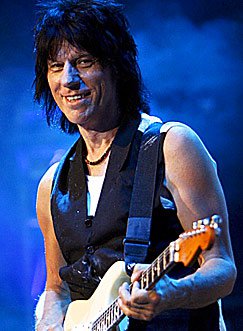
It might not be the first question you ask guitarist Jeff Beck -- it was actually my last -- but it does need to be put: “So Jeff, when you saw Spinal Tap did you think, “Oi, that geezer’s got my hair on?’ “
Beck, who has long had a reputation as a difficult customer -- but hasn’t proven so in this conversation -- laughs loud and long at the thought of Tap’s gormless guitarist Nigel Tufnel (played by Christopher Guest) who does indeed sport Beck’s distinctive shaggy cut.
“It was the wrong colour but pretty close. They’d studied me but it’s mostly from bands like Black Sabbath because I never wore make-up or spandex pants. When I watched it I was the only one laughing in the cinema.”
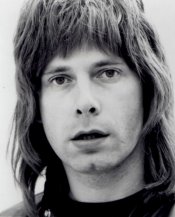 Discretion prevents me from noting that Beck and Tufnel (left) also sound remarkably similar -- but of course on stage, where Beck won his reputation no one else sounds like him at all.
Discretion prevents me from noting that Beck and Tufnel (left) also sound remarkably similar -- but of course on stage, where Beck won his reputation no one else sounds like him at all.
A master of feedback and multiple tracking who has skirted the rock and jazz worlds, Beck is not easily put into any category although he is most commonly referred to as a rock guitarist. That doesn’t fully explain his fusion work with keyboard player Jan Hammer, nor his guest appearances on MOR albums . . . But he certainly came from that background, and he still likes to play loud.
“Of course. Just because the music isn’t mid-stream rock’n’roll it still has elements of that. The volume is something we use to greater effect than just flat out three thousand million watts coming at you.
“We use as much power as we think is needed and use the darkness and the softness as contrast. Otherwise you just deafen people for one and a half hours, and I can’t see the pleasure in that at all really.
“I suppose I’m making a broad sweep about it but I have been to so many gigs where I wished I hadn’t been because of the level of the music.
“I can hear you fine but my high end has gone -- and at the risk of depressing the whole nation, you lose your hearing somewhat at 17, it peaks out then. Bear that in mind folks.”
Even a cursory listen to Beck’s current album recorded live at Ronnie Scott’s London club tells you he hasn’t pulled back an inch: he rips through Beck’s Bolero which is signature tune, touches base with his fusion years, makes the guitar cry, whisper and yell and . . .
Yes, there are times when it sounds like he’s turned it up to 11.
This is the man who, as a member of the Yardbirds, famously smashed a guitar in Antonioni’s 1966 movie Blowup . . . although the Who’s Pete Townshend says his band was dropped in favour of the Yardbirds and his own frequent acts of guitar destruction were merely being mimicked by Beck.
No matter, Beck made his name with the Yardbirds in a volatile 18 months when he replaced Eric Clapton. He earned a reputation as truculent character and musical perfectionist, but he shaped the distinctive riffs on their best-known hits Over, Under, Sideways, Down and Shapes of Things.
When the Yardbirds were inducted into the Rock And Roll Hall of Fame in 92 he jocularly noted they’d kicked him out of the band. 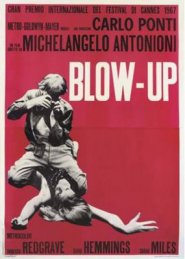
Afterwards he stumbled into a solo career with the gimmicky Hi Ho Silver Lining (featuring a rare Beck vocal) which was the flipside of Beck’s Bolero, credited to Jimmy Page who played alongside him, then was his replacement, in the closing overs of the Yard birds career. Both Beck and Page appear in the line-up for the Antonioni movie.
Although some think of Hi Ho Silver Lining when they recall the young Beck, it wasn’t a song he ever played that often: “Although if they cross my palm with the right sort of money I might,” he laughs.
His solo career began in earnest with the Jeff Beck Group album Truth in 68 which had Rod Stewart on vocals, Who drummer Keith Moon, current Rolling Stone Ron Wood, John Paul Jones (later of Led Zeppelin with Page) and pianist Nicky Hopkins.
It roamed courageously through blues, rock, and loud r’n’b territory -- which Led Zeppelin would claim shortly after. There’s a good case to be made that Beck’s group got there first.
The credit on Beck’s Bolero -- his signature tune even today and which opens the career-summing Live at Ronnie Scott’s -- is also contestable.
“Well, the Yardbirds were dying and the manager suggested I do something to keep me quiet, happy and give me a solo career. So I went round to Jimmy’s house and he came out with this bolero rhythm on a 12-string guitar and I played the melody.
“It was my idea to cut off in the middle Yardbirds style -- Keith Moon changes the tempo -- and that’s what gives it the kick. It’s one of my favourites actually, it’s a little bit of the Who, a little bit of the Yardbirds and a little bit of me.
“But I don’t get a song writing credit. You win some and you lose some down the years.”
The Beck Group recorded another album Beck Ola then broke up, Beck shifted sideways into heavier rock with bassist Tim Bogart and drummer Carmine Appice (formerly of Vanilla Fudge, then Cactus), then slipped towards jazz-fusion with his acclaimed Blow By Blow album in 75 (recorded with Beatles’ producer George Martin)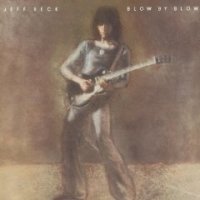
Many say this album and Wired a year later found Beck at a career peak: he essayed rock and jazz fusion with equal ability, and used some judiciously chosen songs (Stevie Wonder’s Because We’ve Ended As Lovers, the Beatles’ She’s A Woman, Charles Mingus’ Goodbye Pork Pie Hat) as starting points. The latter album also teamed him up with synth player Jan Hammer with whom he started a fruitful relationship.
At that time British rock writer Chris Charlesworth noted, “Of all the guitar heroes to emerge from the British blues boom of the mid-60s, Jeff Beck has been the most slippery to follow.”
Beck, now 64, admits that yes, that’s fair.
“Part of the reason,” he says, “is never having attempted to get into mainstream pop, rock or heavy metal or anything like that. Shutting those doors means you’ve only got a limited space to squeeze through, especially if you are without a lead vocalist.”
Always a man happy to hang up the guitar, he all but retired in the 80s.
“I didn’t feel the 80s had anything for me with glam rock and the pop things with synthesisers. When you think of players like [jazz guitarist] John McLaughlin and Jan Hammer whose music spun me around, I couldn’t imagine settling for anything less than that kind of brilliance.
“The 80s were bereft of any music I would want to be involved in, and you had to have a video which was cost prohibitive for me. Everything had to be video for MTV and I didn’t like the idea of power rotation and force-feeding people with stuff on TV. Rock’n’roll is a moment, it’s an exciting jab in the arm. I didn’t go along with that force feeding and power rotation.
“I thought if I couldn’t do what I wanted without all that I’d find something else to do.
“Also Miles Davis’ Jack Johnson album made me realise that highly rated world class players were making the sort of music I felt attached to strongly, and that enabled me to dismiss any temptation to get involved with mainstream rock.
“Having watched so many bands come and go when they pin themselves to certain masts, it was easy to not to do that. And I like to be elusive anyway. I enjoy the freedom.”
But given so many line-ups he has played with you have to wonder, did he ever want a permanent group?
“I did, but finding players that are available is the problem. If you want top flight players they are always booked. Like a plumber, if you want a good one you always have to wait.
“So all the good people are booked unless you catch them between gigs. So there is a short lifespan with a band if you’ve got pick-up players. If it is Jeff Beck plus whoever and you’ve signed a contract that’s different. But to hire players of top quality for just one tour is tough. They may not be around for the next tour.
“So you need to get the gigs coming in to cover the costs. Although you can make a lot of money on the road it all goes out the same day.
“On this tour I have David Sancious (on keyboards) and he’s very good, but he’s in the band because someone forgot to book my regular keyboard player, so there you go!”
And so the man whose career was described as “slippery” as far back as 76 continues to follow an occasional and distinctive path in music between bouts of working at his home workshop on his beloved steel-body hot rods from the 50s.
And yet he would frequently appear for session work: for Phil Collins, soundtracks, old friends like Rod Stewart, Mick Jagger, and Tina Turner for her Private Dancer album.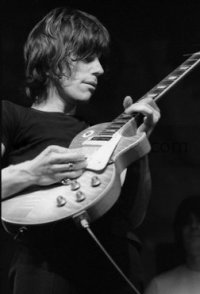
These days he is out on the road again and is up for nomination to the Rock and Roll Hall of Fame as a solo artist.
“I’m not sure how the voting is, but you have to be put forward to a panel and they decide. It’s a big one though, in rock’n’roll terms it doesn’t get much bigger. I’m very flattered.
“I think there are a few people in there who should be, and I don’t know what they are thinking of putting me in there: they’ve got Elvis Presley, Gene Vincent and Little Richard.
“And really, the rest of us are all just hangers-on.”
For a clip of Beck and Jimmy Page together when Beck was inducted into the Rock'n'Roll Hall of Fame in 2009 see here.
Jeff Beck and band, Auckland February 3 2009
There is an old observation about the difference between rock and jazz guitarists: rock guitarists make the easy look difficult, jazz guitarists make the impossible look effortless.
And then there’s Jeff Beck, a rock guitarist who improvises like a jazz musician and makes it look easy. And enjoyable.
Where most rock guitarists grimace, Beck grins as he pulls out a solo which twists on a tonal change and shifts from block chords in the manner of a metal band to the most holy of softly crying notes.
The man is an exceptional musician and at this concert it hardly mattered he didn’t say a word until introducing the band at the end, his guitar did all the talking -- and you also understood why he hasn’t worked with a vocalist in decades. They would be surplus to requirements.
From his signature tune-cum-live soundcheck Beck’s Bolero from the late 60s (the central passages still sound like the jumping off point for Led Zeppelin) through his sublime, emotion-drenched version of Stevie Wonder’s ballad Cause We’ve Ended as Lovers, over the chopping reggae of Behind the Veil and bruising Led Boots to the terrific treatment of the Beatles’ A Day in the Life, Beck had the predominantly middle-age male audience either hushed or ecstatic.
And in this age when guitarists swap instruments for each new song, Beck pulled out all these tonal and emotional colours from the same guitar by judicious use of whammy bar, foot pedals, finger-picking, bottleneck slide and tapping.
This was a virtuoso showcase delivered with self-effacement -- and it wasn’t just Beck’s show alone.
Drummer Vinnie Colaiuta cannoned around his kit with subtlety and fervour (during one solo his glasses flew off), bassist Tal Wilkenfeld pulled out the funk or a Pastorius-like fluidity you were more used to hearing from a fretless bass, and keyboard David Sancious (a jazz player who was on Springsteen’s first two albums) added tonal colour and evocative soundbeds in the ballads.
But upfront was just one man and a multi-lingual guitar.
It was an extraordinary performance which he made look effortless and enjoyable, and in April Beck (already in the Rock and Roll Hall of Fame as a member of the Yardbirds) will be inducted as a solo performer. I think that’s called natural justice.

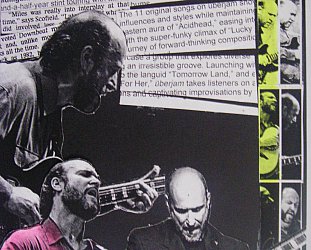
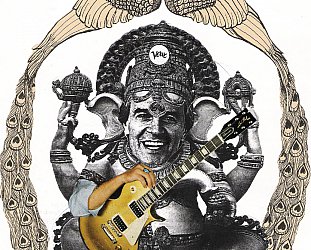

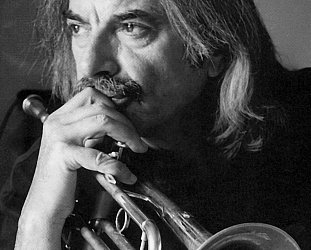

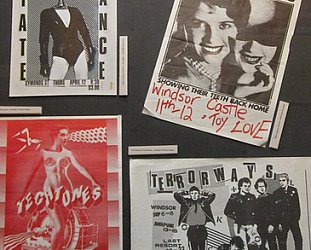
Geoff - Jan 28, 2009
Nice interview, Graham! I wondered why keyboardist Jason Rebello wasn't coming here with him... but I'm sure David Sancious will be fine. Wonder if he has any guest singers... can imagine Hollie Smith doing "People Get Ready". I have no doubt that Jeff Beck's show at ASB Theatre will be one of the best concerts in NZ this century! (for folks who love guitar music, that is).
Savepost a comment